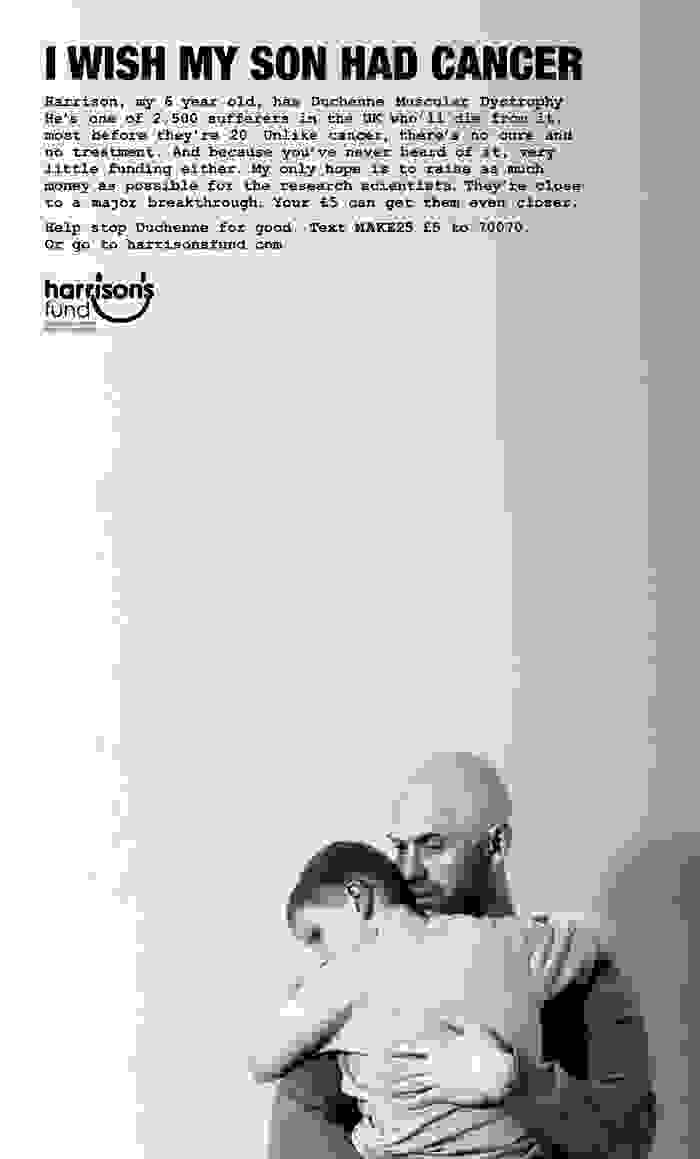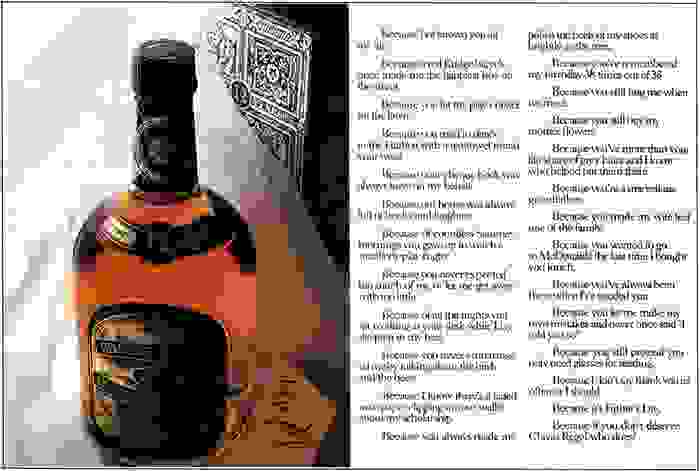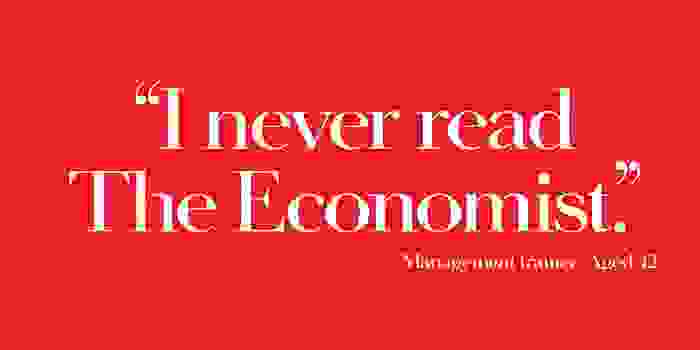The pen can be mightier than the sword
As a creative agency we love interesting visual things. We’re inspired by challenging art and compelling design. But we also believe that the written word is a powerful weapon in the battle against consumer apathy. As much as a striking visual, a well-crafted and disruptive headline can stop someone in their tracks because they want to find out more. After all, as legendary ad man Howard Gossage said, "Nobody reads advertising. People read what interests them; and sometimes it’s an ad."
This is true now more than ever before. 21st Century consumers are savvy and we have all become skilled at filtering out anything which is not immediately of interest. As a marketer, that represents a significant challenge and one which, I would argue, can best be solved by producing outstanding, provocative creative work.




Every single one of these adverts elicited a response from me (I’ll confess that I didn’t buy my dad a bottle of Chivas Regal as he didn’t drink, but he certainly got more than a card that year). Surely it’s obvious that copywriting can be one of the most effective tools at a marketer’s disposal.
And yet, the art of copywriting often seems to be undervalued. I have lost count of the number of times when a marketing project (website, direct marketing, advertising, banner ad, whatever) has suffered because the right amount of care and attention hasn’t been given to the copy as much as other areas. Is it the fact that we all have Microsoft Word and a relatively competent command of the English language which leads us to believe that we can write well without having to spend time crafting, refining or finessing? Or worse, is it because more credence is given to what SEO and content marketing specialists say is important to robots, spiders and ever-changing algorithms than what is actually important to our very-human audience?
Personally, I believe that if you write succinct, relevant and convincing copy, it will only improve your marketing efforts. Of that there should be no argument, but just in case there is here is what Drayton Bird has to say on the subject. With that in mind, here are some principles on how to write more effective copy.
Have a focused idea and then carry that through
The most effective marketing comes from a singular, insightful idea. Use headlines and subheads to draw your audience in, and then craft longer copy to explain your points with as much care. Your writing should always give more weight to the benefits to your audience rather than what features you have for them.
Write as if you were speaking to an individual
Even though you are undoubtedly trying to generate a response from many people, you still need individuals to respond to your work. By putting yourself in their shoes and considering what matters to them, your writing is more likely to be relevant and to make a connection.
Use their language
Using shorter words, sentences and paragraphs will make your writing more accessible. Avoiding complicated jargon is crucial to building understanding and trust, even in business. Business people buying products and services are still people, so speak to them as you would a normal person rather than as an official representative of an organisation.
Find your voice
A company's tone of voice is hugely important to the brand. Consider how you want your audience to think of you: large, steady and reliable or young, dynamic and agile; playful and cheeky or subtle and witty; knowledgable and credible or down to earth and approachable? The way in which you write copy will say as much about your business as your choice of imagery, so spend some time on deciding what is the most appropriate tone, and then work hard on applying that consistently. An established tone of voice should come across in the way you write emails and presentations as well as marketing and advertising.
"Do not worship at the altar of creativity"
Remembering the purpose of what you are writing is important. As David Ogilvy said, "When I write an advertisement, I don’t want you to tell me that you find it 'creative'. I want you to find it so interesting that you buy the product." That principle should hold true whether you are writing an email, content for a website, an advert or a brochure.
Now I am not for one minute suggesting that this is easy. In fact, anyone reading this and thinking that they will resolve to produce better copywriting will find it to be very hard indeed. The start of this post began with a quote so it seems fitting to end with a quote from another famous copywriter from the past which neatly sets out the challenge anyone faces when they first put pen to paper (or finger to keyboard).
"You can say the right thing about a product and nobody will listen. You've got to say it in such a way that people will feel it in their gut. Because if they don't feel it, nothing will happen." Bill Bernback, Copywriter and Founder of DDB
And surely that’s the point of any piece of marketing; to make something happen.
*As an aside, if you’re interested in the history of marketing and advertising, you really should read up on Gossage. This autobiography is penned by Steve Harrison whom I had the great privilege of working for.